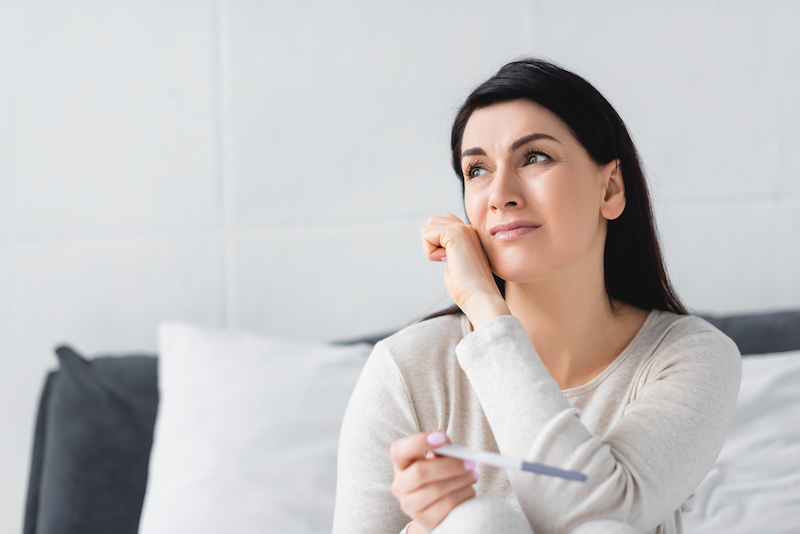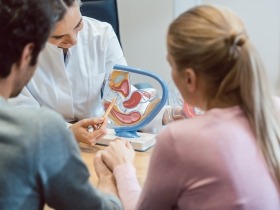Treating Female Infertility
Infertility, or the inability to conceive after 12 months of unprotected intercourse, affects many couples of reproductive age worldwide. About 30 to 40 % of women who want to get pregnant may suffer from infertility problems globally. Their infertility could be due to various factors such as age, lifestyle, medical condition, and geographic location.
Fertility doctors can treat this problem in different ways according to the age of their patients, how long they have had infertility, and their personal preferences. Since it is a complex issue, the type of treatment will depend mainly on the underlying causes of female infertility.
Infertility therapies strive to restore reproductive function through medications, surgery, other procedures, and combinations of these methods. Assisted reproductive technology (ART), in vitro fertilization (IVF), and intrauterine insemination (IUI) are examples of procedures in which fertility injections are administered to patients.
The role of these injections is to stimulate your ovaries to produce multiple eggs, thus increasing your chances of impregnation. Several types of fertility injections are currently available and widely used by medical professionals. The type of injection your doctor will select should depend on your specific needs and the type of ART treatment used.

Gonadotropin-releasing hormone (GnRH) agonists
These contain medication that suppresses the body's production of luteinizing hormone (LH) and follicle-stimulating hormone (FSH), two hormones that stimulate the ovaries to produce eggs. By inhibiting these hormones, GnRH agonists help your doctor to control the timing of your ovulation and prevent premature ovulation. Examples of GnRH agonists are leuprolide acetate (Lupron) and nafarelin acetate (Synarel).
Gonadotropins
Hormones that stimulate the production of multiple eggs by the ovaries, gonadotropins are commonly used in ART treatments to increase the chances of a successful pregnancy. They contain follicle-stimulating hormone (FSH) and luteinizing hormone (LH), typically produced by the pituitary gland, and play a role in regulating the ovulation process. Having more significant amounts of these hormones in your body will stimulate your ovaries to produce more mature follicles. During the process of administrating gonadotropins, your doctor will monitor you closely. They might ask for blood tests and ultrasounds to ensure adequate treatment dosage and timing.
Human chorionic gonadotropin (hCG)
This is a hormone that your body produces naturally during pregnancy. In fertility treatments, hCG is used to trigger ovulation, which is necessary for the release of mature eggs from the ovaries. hCG is typically administered as a single injection. The timing of the injection administration is critical to the success of the treatment. Examples of hCG medications include Ovidrel and Pregnyl.
Clomiphene citrate
This oral drug stimulates ovulation in women who suffer from irregular ovulation or do not ovulate at all. Clomiphene citrate works by blocking estrogen receptors in the brain. This blocking causes the body to produce more FSH and LH, the egg-production stimulating hormones.
Aromatase inhibitors
These medications are typically used in breast cancer treatment but can also increase the chances of ovulation. Aromatase inhibitors work by blocking the production of estrogen, which can stimulate the production of FSH and LH. These inhibitors are also a treatment for endometriosis and the infertility caused by it. [1]
Overall, several types of fertility medications are available for individuals undergoing assisted reproductive technology (ART) treatments. These injections work by stimulating the ovaries to produce larger quantities of eggs, increasing the chances of a successful pregnancy. The type of medicine used will depend on your specific needs and the type of ART treatment you and your doctor have chosen. A qualified fertility specialist should prescribe all drugs.
Sources:
- Słopień, R., & Meczekalski, B. (2016). Aromatase inhibitors in the treatment of endometriosis. Przeglad Menopauzalny, 1, 43–47. https://doi.org/10.5114/pm.2016.58773
- Geddes, J. K., & Geddes, J. K. (2021). Common Fertility Treatment Drugs to Help Women Get Pregnant. What to Expect. https://www.whattoexpect.com/getting-pregnant/fertility-tests-and-treatm...
- Female infertility - Diagnosis and treatment - Mayo Clinic. (2021b, August 27). https://www.mayoclinic.org/diseases-conditions/female-infertility/diagno...






